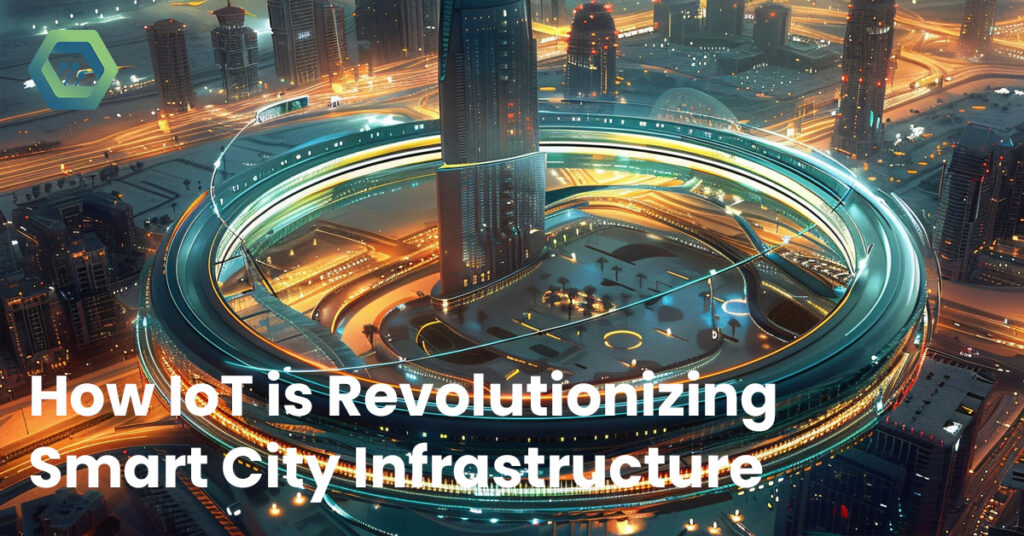In the age of rapid urbanization, cities are evolving into complex ecosystems requiring intelligent solutions for efficiency, sustainability, and quality of life. The integration of Internet of Things (IoT) technology is playing a transformative role in shaping the future of smart city infrastructure. From traffic management and waste disposal to public safety and energy efficiency, IoT is enabling real-time data collection, automation, and predictive analytics to optimize urban living.
This blog explores how IoT is revolutionizing smart cities, its key applications, benefits, and future impact on urban development.
What is IoT in Smart City Infrastructure?
IoT refers to a network of interconnected devices that collect and exchange data to enable real-time monitoring, automation, and improved decision-making. In smart cities, IoT sensors, connected devices, and AI-driven analytics work together to enhance urban services, reduce operational costs, and improve sustainability.
Applications of IoT in Smart Cities
- 1. Smart Traffic and Transportation
- Congestion and inefficient public transportation are major urban challenges. IoT enables real-time traffic monitoring, smart signals, and predictive analytics to optimize vehicle flow and reduce congestion.
- Key benefits:
- Intelligent traffic lights reduce wait times and fuel consumption.
- Connected public transport enhances route planning and passenger experience.
- Smart parking solutions use IoT sensors to guide drivers to available spots.
- 2. Sustainable Energy Management
- Smart grids and IoT-driven energy monitoring systems enhance energy efficiency and promote renewable energy adoption in cities.
- Key benefits:
- IoT-based smart meters reduce energy waste.
- Automated street lighting adjusts brightness based on real-time demand.
- Integration with solar and wind power optimizes energy distribution.
- 3. Enhanced Public Safety and Security
- IoT-based surveillance and emergency response systems improve urban safety and disaster management.
- Key benefits:
- AI-powered video analytics detect suspicious activities in real-time.
- Smart emergency alert systems enable rapid response to crises.
- IoT-connected fire detection systems enhance disaster preparedness.
- 4. Smart Waste Management
- IoT sensors in waste bins monitor fill levels, enabling optimized garbage collection routes and reducing unnecessary pickups.
- Key benefits:
- Reduces operational costs and fuel consumption for waste collection trucks.
- Improves sanitation and cleanliness in urban areas.
- Promotes recycling with smart waste sorting solutions.
- 5. Water Conservation and Smart Irrigation
- Water scarcity is a growing concern, and IoT helps cities monitor water usage, detect leaks, and optimize irrigation systems.
- Key benefits:
- Smart water meters reduce wastage and detect leaks in real time.
- Automated irrigation systems adjust watering based on weather conditions.
- Data-driven water conservation strategies enhance sustainability.
- 6. Air Quality Monitoring for Healthier Cities
- IoT sensors measure air pollution levels and provide insights for urban planners to improve city air quality.
- Key benefits:
- Real-time air quality monitoring detects pollution hotspots.
- Alerts citizens about hazardous air conditions.
- Enables data-driven environmental policies to combat pollution.
Benefits of IoT in Smart Cities
1. Improved Urban Efficiency
IoT-driven automation and predictive analytics enhance the efficiency of city operations, reducing manual intervention and errors.
2. Cost Savings and Resource Optimization
Smart infrastructure reduces energy consumption, water wastage, and operational costs for municipalities.
3. Sustainability and Environmental Impact
IoT contributes to lower carbon footprints by optimizing energy, waste management, and water conservation efforts.
4. Enhanced Quality of Life
From intelligent transport to better air quality, IoT-powered smart cities create healthier and more convenient living conditions for citizens.
Future of IoT in Smart City Development
The adoption of 5G technology, AI-driven analytics, and blockchain integration will further enhance IoT’s impact on smart cities. Future advancements will focus on autonomous transportation, advanced AI-based city planning, and greater cybersecurity for IoT networks.
IoT is revolutionizing smart city infrastructure by enabling intelligent solutions that improve urban efficiency, sustainability, and citizen well-being. As technology advances, cities will continue to evolve into more connected, data-driven, and environmentally friendly ecosystems.
To explore how OmniWOT’s IoT solutions can empower smart cities, visit our IoT Platform and discover cutting-edge technologies for urban transformation.


